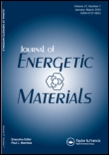
Journal of Energetic Materials
Scope & Guideline
Pioneering Insights in the World of Energetic Materials
Introduction
Aims and Scopes
- Synthesis and Characterization of Energetic Materials:
The journal emphasizes research on the development and characterization of new energetic compounds, including nitrocellulose, HMX, RDX, and various composites, to enhance performance and safety. - Thermal and Combustion Behavior Studies:
A core area of focus is the investigation of the thermal stability, combustion characteristics, and decomposition mechanisms of energetic materials, which are crucial for understanding their performance in practical applications. - Modeling and Simulation Techniques:
The journal promotes the use of computational modeling and simulation to predict the behavior of energetic materials under various conditions, including combustion, detonation, and impact sensitivity. - Safety and Environmental Impact Assessments:
Research addressing the safety aspects of handling and using energetic materials, including disposal methods and environmental impacts, is a significant theme, reflecting the journal's commitment to responsible science. - Innovative Applications and Technologies:
The journal also explores novel applications of energetic materials, including propulsion systems, military applications, and potential uses in civilian sectors, showcasing interdisciplinary research.
Trending and Emerging
- Green and Sustainable Energetic Materials:
There is a growing emphasis on the development of environmentally friendly and sustainable energetic materials, reflecting a global shift towards greener technologies and practices. - Advanced Composite Materials:
Recent publications increasingly focus on composite materials that combine different energetic compounds to enhance performance, safety, and application versatility, indicating a trend towards more complex formulations. - Nanomaterials and Nanoscale Engineering:
Research involving nanomaterials and nanoscale engineering techniques is on the rise, as these technologies offer significant improvements in the performance and safety of energetic materials. - Machine Learning and Data-Driven Approaches:
The integration of machine learning and data-driven methodologies for predicting the properties and behaviors of energetic materials is emerging as a significant trend, showcasing the journal's adaptation to new technological paradigms. - Multiscale Modeling and Simulation:
An increasing number of studies utilize multiscale modeling to investigate the behavior of energetic materials across different scales, from molecular interactions to macroscopic performance, indicating a trend towards comprehensive understanding.
Declining or Waning
- Traditional Explosive Formulations:
Research focusing solely on traditional explosive formulations such as TNT has decreased, as the field shifts towards more innovative and environmentally friendly alternatives. - Single-Component Explosive Studies:
There is a noticeable decline in papers dedicated to the examination of single-component explosives, with a trend towards more complex composite and hybrid formulations that enhance performance. - Basic Theoretical Studies:
The journal has seen a reduction in basic theoretical studies that do not directly contribute to practical applications or technological advancements, as the focus moves towards applied research. - Conventional Propellant Systems:
Research on conventional propellant systems is waning, likely due to the increasing interest in novel propellant technologies and composite materials that offer enhanced performance.
Similar Journals
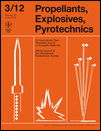
PROPELLANTS EXPLOSIVES PYROTECHNICS
Elevating Standards in Chemical Engineering ResearchPROPELLANTS EXPLOSIVES PYROTECHNICS, published by WILEY-V C H VERLAG GMBH, is a distinguished journal focused on the dynamic field of chemical engineering and chemistry, with particular emphasis on the development and application of propellant, explosive, and pyrotechnic materials. Established in 1976, this journal has maintained its relevance as it converges towards 2024, making substantial contributions to the scientific community with a Q2 ranking in both Chemical Engineering and Chemistry categories as of 2023. Ranking within the 58th percentile in General Chemistry and the 57th percentile in General Chemical Engineering in Scopus, it is a pivotal resource for researchers, professionals, and students aiming to advance their understanding of these critical domains. While not an open-access journal, its rigorous peer-review process guarantees high-quality content, enriching the knowledge landscape in propellants and explosives. Located in Germany, the journal’s contribution to the synthesis, characterization, and application of energetic materials underscores its importance as a leading platform for innovative research in this specialized area.

Defence Technology
Connecting Minds for Defence AdvancementDefence Technology, an esteemed journal published by KEAI PUBLISHING LTD, stands at the forefront of innovation and research in the fields of ceramics, composites, computational mechanics, mechanical engineering, and metals and alloys. Since its inception in 2013, this Open Access journal has committed itself to disseminating high-quality research, boasting a remarkable Q1 ranking across multiple categories in 2023. With a profound impact in the engineering and materials science communities, it ranks impressively within its Scopus categories—6th in Computational Mechanics and 21st in Metals and Alloys, to name a few—placing it in the top percentiles of performance. The journal's accessibility fosters a global dialogue among researchers, professionals, and students striving to push the boundaries of defence technology and material sciences. By contributing to this journal, authors join a distinguished community aimed at addressing contemporary challenges and pioneering advancements in defence applications.
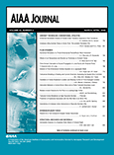
AIAA JOURNAL
Elevating Knowledge in Aeronautics and AstronauticsAIAA JOURNAL, published by the American Institute of Aeronautics and Astronautics, stands as a premier peer-reviewed platform for cutting-edge research in the field of aerospace engineering. With an esteemed Q1 classification in the Aerospace Engineering category and a notable rank within the top 20% of its field according to Scopus, this journal has become an essential resource for researchers, professionals, and students alike. Spanning over six decades of impactful scholarship from 1963 to 2024, the AIAA JOURNAL contributes significantly to the advancement of aerospace technologies and methodologies. While it does not offer open access, its rigorous editorial standards and impactful articles ensure that it remains a vital source for those seeking to stay at the forefront of aerospace innovation. Explore the rich tradition of excellence and stay informed on the latest discoveries that shape the world of flight and space exploration.
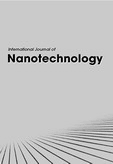
International Journal of Nanotechnology
Unveiling the Potential of Nanotechnology for TomorrowInternational Journal of Nanotechnology, published by INDERSCIENCE ENTERPRISES LTD, is a prominent academic platform dedicated to advancing research in the rapidly evolving field of nanotechnology. With an ISSN of 1475-7435 and an E-ISSN of 1741-8151, this journal has been contributing valuable insights and innovative findings since its inception in 2004. Although currently not an open-access publication, it serves as an essential resource for researchers, professionals, and students alike, encompassing critical areas such as bioengineering, condensed matter physics, and materials science. The journal is indexed in Scopus, highlighting its academic rigor, albeit ranking in the lower quartiles across several categories. As it progresses towards its 2024 milestone, the International Journal of Nanotechnology continues to play a crucial role in fostering collaborative scientific discourse and pushing the boundaries of knowledge in nanoscience. With a distinguished reputation in the United Kingdom and beyond, it is a vital tool for anyone looking to stay at the forefront of nanotechnology advancements.
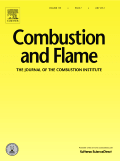
Combustion and Flame
Connecting Scholars in the World of CombustionCombustion and Flame is a premier academic journal published by Elsevier Science Inc, dedicated to advancing the field of combustion science. Since its inception in 1957, this journal has consistently provided a platform for rigorous research and groundbreaking discoveries in the realms of Chemical Engineering, Chemistry, and Energy Engineering, illustrating a significant Q1 ranking across multiple categories, including Fuel Technology and Physics. With an impressive Scopus ranking, comprising the top 10% in fields such as General Physics and Astronomy, and General Chemical Engineering, Combustion and Flame serves as a critical resource for researchers, professionals, and students aiming to explore the complexities of combustion phenomena and their applications. Although it does not offer open access, the journal is known for its comprehensive articles and innovative research papers, fostering scholarly dialogue and the development of emerging technologies. The journal aims to connect researchers globally, ensuring that important findings are shared and disseminated effectively.
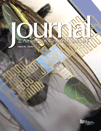
JOURNAL OF THE AMERICAN CERAMIC SOCIETY
Fostering Excellence in Materials InnovationJOURNAL OF THE AMERICAN CERAMIC SOCIETY, a prestigious publication within the field of ceramics and materials science, has been at the forefront of advancing research since its inception in 1918 and will continue to be a leading resource through 2024. Published by WILEY, this journal boasts an impressive impact factor, reflecting its strong reputation in the academic community. With its categorization in the Q1 quartile for both Ceramics and Composites and Materials Chemistry, the journal is ranked among the top in its fields, placing it in the 78th and 76th percentiles, respectively, according to Scopus metrics. Although not an open-access journal, it provides critical insights, robust research findings, and a platform for experts to disseminate their work, making it an essential resource for researchers, professionals, and students alike who are engaged in ceramic sciences and materials innovation. The Journal’s meticulous peer-review process ensures the highest quality and relevance of publications, fostering a rich environment for academic discourse and collaboration.
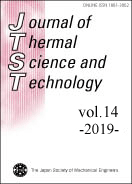
Journal of Thermal Science and Technology
Pioneering breakthroughs in thermal technology and applications.Journal of Thermal Science and Technology, published by the Japan Society of Mechanical Engineers, is a distinguished open-access journal that has been serving the academic community since its inception in 2009. With a commitment to disseminating cutting-edge research in the realms of thermal science and its engineering applications, the journal has established itself as an essential resource for researchers, professionals, and students alike. Holding important quartile rankings in 2023, including Q3 in Atomic and Molecular Physics, Engineering (miscellaneous), and Materials Science (miscellaneous), this journal showcases high-impact studies that contribute to the advancement of technology and materials engineering. Open access since 2021, it aims to enhance the visibility and accessibility of critical research findings, thus fostering innovation and collaboration within the global scientific community. The journal’s dedicated editorial board actively seeks to publish novel insights that not only engage with existing challenges but also inspire future developments in thermal science and technology.
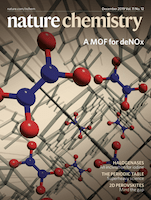
Nature Chemistry
Transforming Ideas into Chemical Solutions.Nature Chemistry is a prestigious journal published by NATURE PORTFOLIO, focusing on groundbreaking research in the realms of chemistry and chemical engineering. Since its inception in 2009, this esteemed publication has garnered significant recognition, currently ranking in the Q1 category for both Chemical Engineering and Chemistry (miscellaneous) as of 2023. With an impactful presence, it ranks 4th out of 273 in General Chemical Engineering and 9th out of 408 in General Chemistry, placing it within the top 2% of journals in its field. Nature Chemistry aims to publish high-quality, peer-reviewed articles that advance our understanding of chemical science and its applications, catering to an audience of researchers, professionals, and students eager to explore innovative discoveries. While it offers various access options, dedicated readers appreciate its contribution to the scientific community from its base in Berlin, Germany.
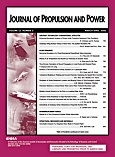
JOURNAL OF PROPULSION AND POWER
Unleashing Potential in Aerospace Science and EngineeringJOURNAL OF PROPULSION AND POWER, published by the American Institute of Aeronautics and Astronautics, is a premier peer-reviewed journal dedicated to the advancement of knowledge in the fields of aerospace engineering, mechanical engineering, and fuel technology. With an impressive impact factor and ranked in the Q1 and Q2 categories for various relevant fields, the journal serves as a vital resource for researchers, professionals, and students alike who are looking to stay abreast of the latest innovations and breakthroughs in propulsion systems and power generation methodologies. Established in 1985, the journal covers a wide range of topics, ensuring a comprehensive understanding of propulsion technologies from atmospheric to space applications. Its robust Scopus rankings highlight its significance in the academic community, establishing it as a leading forum for sharing pivotal research findings and fostering collaborative dialogues that drive the aerospace industry forward. Located in Reston, Virginia, the journal does not currently offer open access options, yet it remains accessible to a vast audience via academic institutions and libraries. As we move further into the 21st century, the JOURNAL OF PROPULSION AND POWER continues to be an indispensable tool for the exploration and evolution of propulsion and power systems.
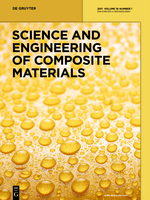
SCIENCE AND ENGINEERING OF COMPOSITE MATERIALS
Elevating Knowledge in Ceramics and CompositesScience and Engineering of Composite Materials is a highly regarded open-access journal published by De Gruyter Poland SP Z O O, dedicated to advancing research in the field of composite materials. With an ISSN of 0792-1233 and an E-ISSN of 2191-0359, this journal has been a pivotal platform for the dissemination of innovative studies since its inception in 1988, now spanning over three decades of scholarly contributions. Operating out of Germany, it provides unrestricted access to high-quality articles that enhance the understanding of ceramics, composites, and materials chemistry, currently categorized in the Q3 quartile for both domains as of 2023. The journal is indexed in Scopus, where it ranks 67 out of 127 in the materials science ceramics and composites category and 181 out of 317 in materials chemistry. Researchers, professionals, and students are encouraged to leverage this vital resource to stay abreast of cutting-edge developments in composite material science and engineering, fostering knowledge sharing and collaboration in a rapidly evolving field.